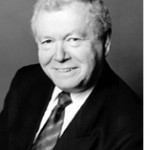By Rabbi Dow Marmur
 JERUSALEM– Critics of Israel say sometimes that it’s a democratic state for just over 80% of the population. The country’s 1.3 million Arab citizens don’t feel that they’re treated equally and their Jewish supporters agree. Here are three of the many reasons.
JERUSALEM– Critics of Israel say sometimes that it’s a democratic state for just over 80% of the population. The country’s 1.3 million Arab citizens don’t feel that they’re treated equally and their Jewish supporters agree. Here are three of the many reasons.
Resources: Arab municipalities in Israel get substantially less of public funds than places with a Jewish majority. This includes education. That’s a major reason why Arab children in Israel have less opportunities to get ahead than their Jewish counterparts (even though they fare much better than they would elsewhere in the Middle East). The reason often given is that resources are apportioned according to tax revenue. But by having, for example, less educational opportunities, many of the residents are likely to end up in menial jobs, or be unemployed, and thus have less income on which to pay tax.
Intangibles: For example, the bus to Rahat, the Beduin town in northern Negev, only makes announcements in Hebrew, even though most of the passengers are Arabic- speaking and may not know enough Hebrew to understand what they hear. Language as a tool of domination is well known in many countries. It’s currently a hot issue in Europe and an important factor in the politics of Canada.
Perhaps under this rubric we should also mention the rigor with which Arab air passengers are being checked by Israeli security personnel. Israel’s successful system of profiling passengers has meant that Arabs are considered an added risk. Though this means treating them worse than most others, Israel’s security concerns tend to justify it. Arab travellers are understandably offended.
De-legitimization: Its principal proponent at present is Avigdor Lieberman (him again), the leader of the largely “Russian” party Yisrael Beiteinu, but he’s by no means the first. Efforts to push out what has remained of the Arab population within Israel beyond its borders have been on the agenda of several Israeli politicians from the beginning. But though Israeli Arabs may identify with the cause of the Palestinians, they’re also bound to the land on which they live and the way of life that has become theirs. They regard the idea of such “transfer” as abhorrent, offensive and unjust.
I heard some of the above and inferred the rest from Ron Gerlitz of Sikkuy, an organization devoted to Arab-Jewish understanding and cooperation in Israel. He’s one of the organization’s two executive directors; the other is an Arab. He was speaking to a group of Reform rabbis in Israel and praised the Reform movement’s religious action branch for help and support. Supporters abroad include a number of Canadian Jews.
Gerlitz reminded his audience that though the laws of the State of Israel don’t make for discrimination between citizens, its bureaucrats do – and that’s the problem. Bureaucracy is a burden to all. Even Netanyahu has recently complained about it. Groups without power suffer very much from it, and that includes the Reform movement.
Gerlitz believes that parallel efforts can ease the situation. The basis for many of the present difficulties is that each side believes that it’s the other that has to change and thus avoids taking responsibility for its own actions. I understand this to mean that the Jewish majority in Israel must purge itself of its own prejudices and bureaucratic excuses while the leaders of the Arab minority must engage in a corresponding process. Without repentance leading to reconciliation things aren’t likely to get better.
*
*
Rabbi Marmur is spiritual leader emeritus of Holy Blossom Temple in Toronto. He now divides his year between Canada and Israel. He may be contacted at dow.marmur@sdjewishworld.com